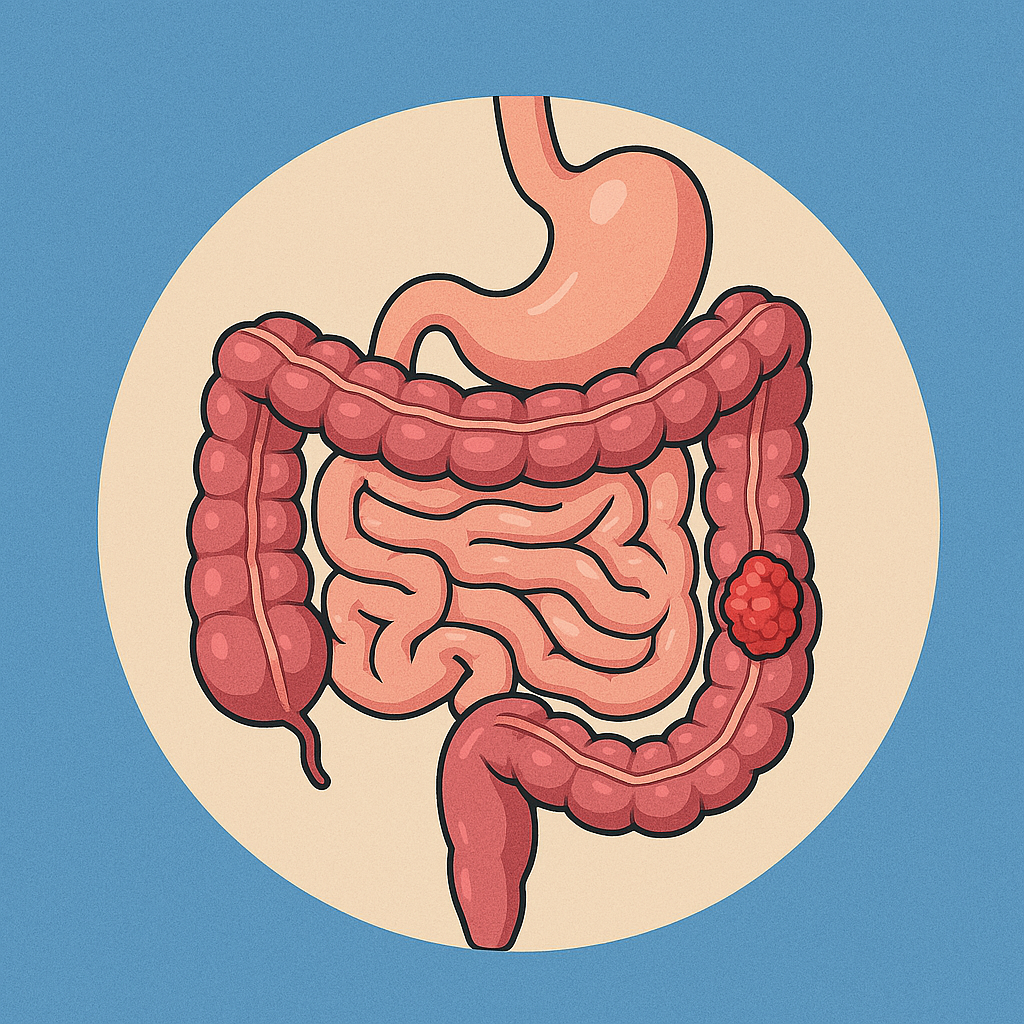Colorectal cancer is one of the leading causes of morbidity and mortality worldwide. It affects the colon and rectum, and its incidence has increased in recent years, especially in populations with diets high in ultra-processed foods and low in fibre.
International Colon Cancer Day
Every 31st March is International Colon Cancer Day, a date dedicated to raising awareness of the importance of prevention, early diagnosis and proper treatment of this disease. During this day, various campaigns are carried out to inform the population about risk factors and the importance of regular check-ups.
What is colorectal cancer?
Colourectal cancer originates in the inner lining of the colon or rectum. Most cases begin with the appearance of adenomatous polyps, which can become malignant tumours over time if they are not detected and eliminated in time.
Risk Factors
There are several factors that can increase the likelihood of developing colorectal cancer:
Non-Modifiable Factors
- Age: The incidence increases from the age of 50 onwards.
- Family history: If a first-degree relative has had colorectal cancer, the risk increases.
- Genetic conditions: Hereditary diseases such as familial adenomatous polyposis (FAP) or Lynch syndrome increase the predisposition.
- Inflammatory bowel diseases: Such as Crohn’s disease and ulcerative colitis.
Modifiable Factors
- Diet: Excessive consumption of red meat, sausages and ultra-processed foods.
- Lack of fibre: A diet low in fruit, vegetables and whole grains contributes to the risk.
- Sedentary lifestyle: Physical inactivity can favour the onset of cancer.
- Obesity: Especially abdominal fat is related to a higher risk.
- Tobacco and alcohol: Both are linked to a greater probability of developing malignant tumours.
Symptoms of colorectal cancer
In its early stages, this disease may be asymptomatic. However, as it progresses, the following warning signs may appear:
- Changes in bowel habits (prolonged diarrhoea or constipation).
- Rectal bleeding or blood in the stool.
- Unexplained weight loss.
- Constant fatigue.
- Persistent abdominal pain or discomfort.
- Feeling of incomplete evacuation.
Diagnosis and Prevention
Diagnostic Tests
To detect colorectal cancer in time, it is recommended that regular examinations be carried out, especially in people at risk:
- Colonoscopy: Allows the colon to be visualised and polyps to be removed before they become cancerous.
- Fecal occult blood test: Detects small amounts of blood in the stool.
- Flexible sigmoidoscopy: Similar to colonoscopy, but only examines the rectum and part of the colon.
- Genetic testing: In people with a strong family history, it can help assess risk.
Prevention Strategies
To reduce the risk of developing colorectal cancer, it is recommended to:
- Maintain a diet rich in fibre, based on fruit, vegetables, legumes and whole grains.
- Limit consumption of processed meats and saturated fats.
- Take regular exercise.
- Avoid excessive consumption of alcohol and tobacco.
- Have regular medical check-ups, especially after the age of 50 or earlier if there are risk factors.
Available Treatments
Treatment depends on the stage at which the cancer is diagnosed. The most commonly used options are:
- Surgery: This is the main treatment to remove the tumour and the affected tissue.
- Chemotherapy: Used to eliminate any cancerous cells that may have remained after surgery or to treat advanced cases.
- Radiotherapy: Especially useful in rectal cancer.
- Targeted therapies: Drugs that specifically attack cancerous cells without damaging healthy ones.
- Immunotherapy: Boosts the immune system to fight cancer.
Prognosis and Quality of Life
The prognosis for colorectal cancer varies depending on the time of diagnosis. When detected in the early stages, the survival rate is over 90%. However, if it is diagnosed in the advanced stages, the prognosis is significantly reduced.
It is essential that people diagnosed with colorectal cancer receive multidisciplinary treatment that includes nutritional, physical and emotional support to improve their quality of life.
Conclusion
Colorectal cancer is a preventable disease and treatable if detected in time. Adopting a healthy lifestyle and undergoing regular check-ups can make all the difference in its prevention and treatment. Take care of yourself and don’t miss your medical check-ups!




